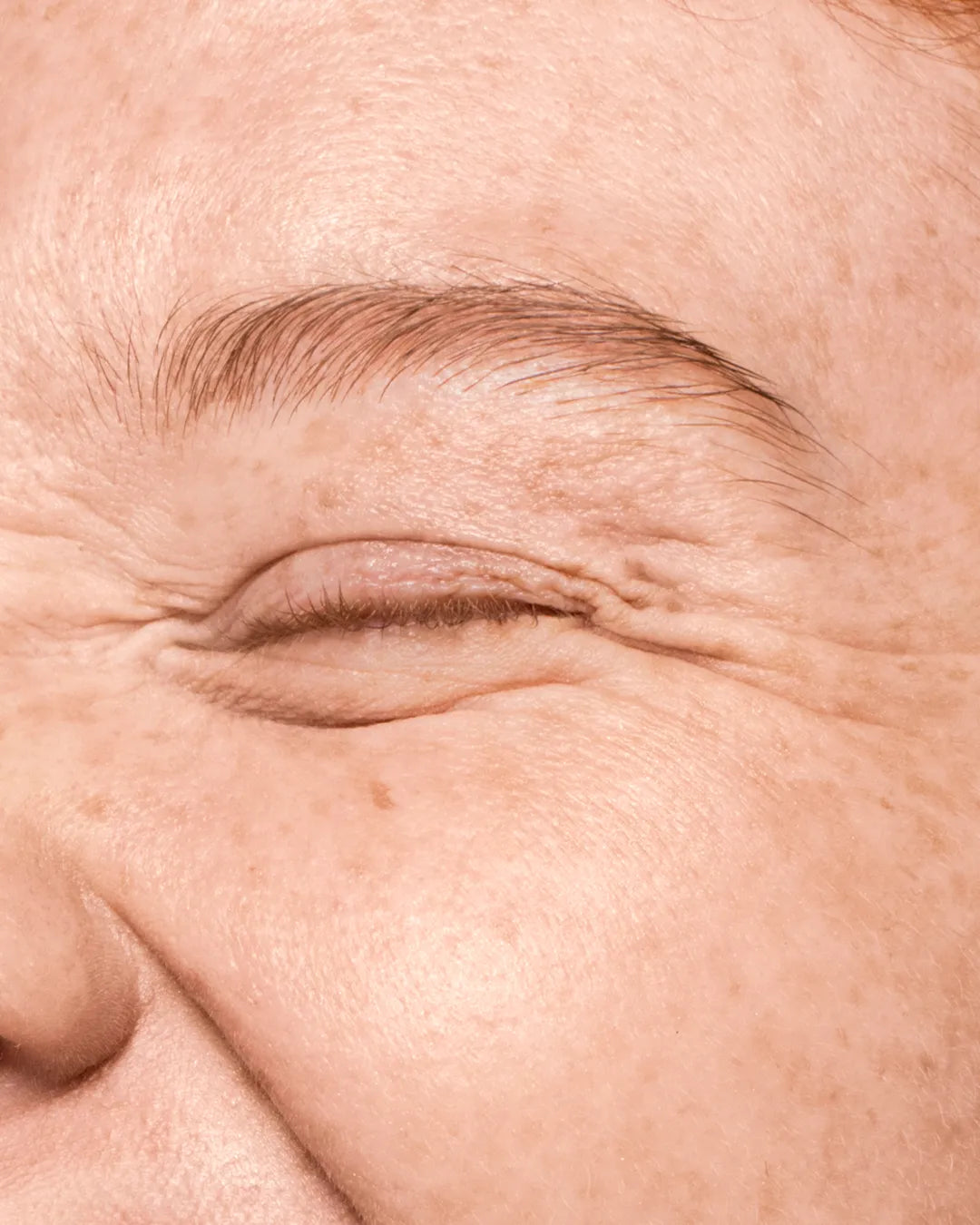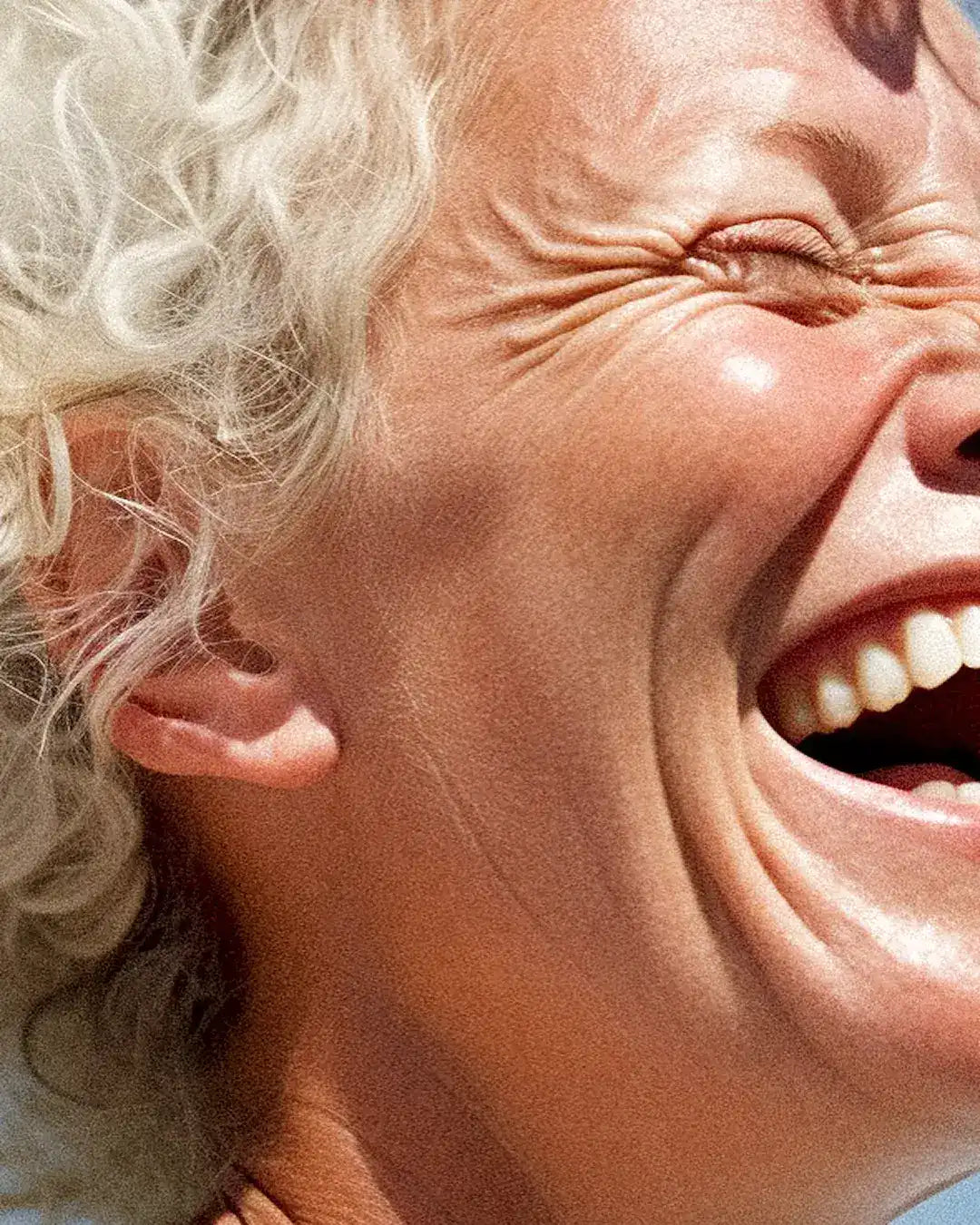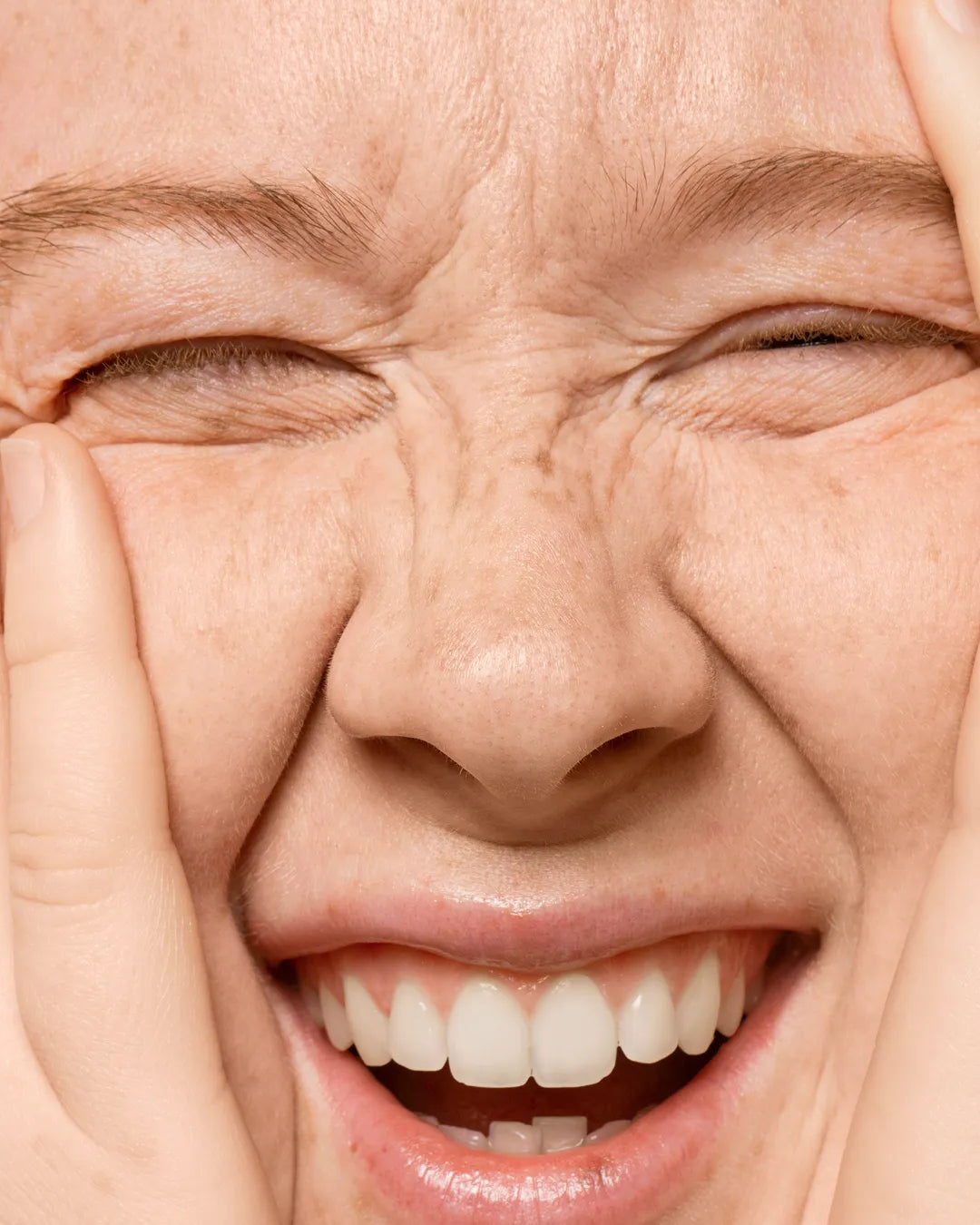- Gentle Cleansing: Use a gentle cleanser that does not strip the natural oils from your skin. Wash your face with lukewarm water, not hot, to avoid dryness.
- Constant Hydration: Apply a moisturizer suitable for your skin type after cleansing. Look for products with ingredients like hyaluronic acid, glycerin, or ceramides, which help retain moisture.
- Sun Protection: Use sunscreen every day, even on cloudy days. Sun protection is essential to prevent future damage and aggravate existing spots.
- Gentle Exfoliation: Exfoliate your skin once a week to remove dead cells and improve the absorption of hydrating products.
- Healthy Diet: A balanced diet rich in antioxidants, vitamins, and minerals can contribute to the health of your skin. Drink enough water to keep it hydrated from the inside.
- Rest and Stress Reduction: Stress and lack of sleep can negatively affect the skin. Try to maintain a balanced lifestyle and ensure you get enough rest.
- Consult a Professional: If you experience severe skin issues, such as persistent spots or extreme dehydration, seek help from a dermatologist or an aesthetic professional for a personalized diagnosis and treatment.

The best tips for dehydrated skin and/or with spots
During the summer, we tend to expose ourselves more to the sun due to our outdoor activities, such as going to the beach, the pool, or the mountains. If we do not adequately protect our skin, damage can occur. Even if we take precautions, our skin will suffer to some extent due to sun exposure. In this article, we will address tips for recovering the skin after summer, as the appearance of spots and skin dehydration are common problems.
The Skin in Summer In this season, the skin dehydrates more easily and is prone to developing spots. Therefore, the months following summer are ideal for starting an effective routine that restores our skin. If you already have an established routine, it is important to reinforce treatments that increase the hydration lost during the holidays and those aimed at evening out the tone and reducing hyperpigmentation caused by the sun.
How to Identify Dehydrated Skin? Dehydrated skin lacks sufficient water. Dehydration affects all skin types, including combination or oily skin. Water makes up 70% of our skin, and most of it is found in the deepest layer of the dermis, playing a crucial role in its resilience.
Well-hydrated skin retains water properly. When water is lacking, the skin feels tight, may itch, and its luminosity decreases. Dehydration also weakens the skin's protective barrier function.
The Best Medical Treatments for Dry or Dehydrated Skin We have discussed cosmetic treatments in previous articles, but now we will focus on medical treatments to address these issues in depth. Here are some examples:
Deep Hydration: This treatment involves the injection of non-crosslinked hyaluronic acid into the face. This type of hyaluronic acid does not increase volume but is associated with a dermo-restructuring complex that significantly improves the skin. It stimulates the production of collagen and elastin, helping the skin retain more water and recover the lost hydration. Additional hyaluronic acid complements the skin's natural production.
Mesotherapy: This treatment consists of injecting a cocktail of vitamins along with hyaluronic acid into the skin. Although the concentration of hyaluronic acid is lower than in deep hydration, it still provides effective hydration.
Dermapen: Using microneedle technology, the Dermapen creates micro-perforations in the skin to improve the absorption of active ingredients. It is useful for treating fine wrinkles, acne scars, and improving the overall quality of the skin. To hydrate and provide luminosity, a cocktail of vitamins is applied.
Deep Medical Cleansing: The medical device Aquapure is used to perform this treatment. From the first session, you will notice more hydrated, luminous, and healthy skin.
These medical treatments can be an excellent option for addressing dehydration and spots on the skin after summer. It is important to consult a health or aesthetic professional to determine which is the most suitable for your skin.
During the summer, we tend to expose ourselves more to the sun due to our outdoor activities, such as going to the beach, the pool, or the mountains. If we do not adequately protect our skin, damage can occur. Even if we take precautions, our skin will suffer to some extent due to sun exposure. In this article, we will address tips for recovering the skin after summer, as the appearance of spots and skin dehydration are common problems.
The Skin in Summer
In this season, the skin dehydrates more easily and is prone to developing spots. Therefore, the months following summer are ideal for starting an effective routine that restores our skin. If you already have an established routine, it is important to reinforce treatments that increase the hydration lost during the holidays and those aimed at evening out the tone and reducing hyperpigmentation caused by the sun.
How to Identify Dehydrated Skin?
Dehydrated skin lacks sufficient water. Dehydration affects all skin types, including combination or oily skin. Water makes up 70% of our skin, and most of it is found in the deepest layer of the dermis, playing a crucial role in its resilience.
Well-hydrated skin retains water properly. When water is lacking, the skin feels tight, may itch, and its luminosity decreases. Dehydration also weakens the skin's protective barrier function.
The Best Medical Treatments for Dry or Dehydrated Skin
We have discussed cosmetic treatments in previous articles, but now we will focus on medical treatments to address these issues in depth. Here are some examples:
Deep Hydration: This treatment involves the injection of non-crosslinked hyaluronic acid into the face. This type of hyaluronic acid does not increase volume but is associated with a dermo-restructuring complex that significantly improves the skin. It stimulates the production of collagen and elastin, helping the skin retain more water and recover the hydration lost. Additional hyaluronic acid complements the skin's natural production.
Mesotherapy: This treatment consists of injecting a cocktail of vitamins along with hyaluronic acid into the skin. Although the concentration of hyaluronic acid is lower than in deep hydration, it still provides effective hydration.
Dermapen: Using microneedle technology, the Dermapen creates micro-perforations in the skin to improve the absorption of active ingredients. It is useful for treating fine wrinkles, acne scars, and improving the overall quality of the skin. To hydrate and provide luminosity, a cocktail of vitamins is applied.
Deep Medical Cleansing: The medical device Aquapure is used to perform this treatment. From the first session, you will notice more hydrated, luminous, and healthy skin.
Tips for Daily Care of Dehydrated Skin
In addition to the mentioned medical treatments, it is essential to maintain a daily skincare routine to combat dehydration and spots. Here are some tips:




